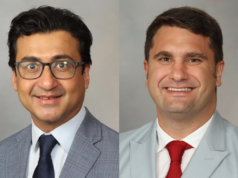
The Hip Hope Stroke initiative used hip hop music lyrics to educate economically disadvantaged children and their parents about stroke. Before the initiative, only 3% of parents could identify all the stroke symptoms in the FAST acronym and only 2% of children had optimal stroke knowledge. This increased to 20% immediately afterwards and 17% three months later.
In the large, five-year randomised health trial, researchers studied more than 3,000 4th (9–10 years old) through 6th (11–12 years old) graders from 22 public schools in New York City and a group of 1,144 of their parents. They found that Hip Hop Stroke, a three-hour multimedia stroke awareness intervention, increased optimal stroke knowledge from 2% of children before the intervention, to 57% right after. Three months later, 24% of children retained that knowledge.
“The lack of stroke recognition, especially among blacks, results in dangerous delays in treatment,” says Olajide Williams, study author and associate professor of neurology at Columbia University Medical Center, New York Presbyterian Hospital, USA. “Because of those delays, only a quarter of all stroke patients arrive at the hospital within the ideal time for clot-busting treatment. My hope is that the program will be used around the country.”
Deficiencies in stroke preparedness cause major delays to stroke thrombolysis, particularly among economically disadvantaged minorities.
The study concluded that Hip-Hop Stroke is an effective, inter-generational model for increasing stroke preparedness among economically disadvantaged minorities.









